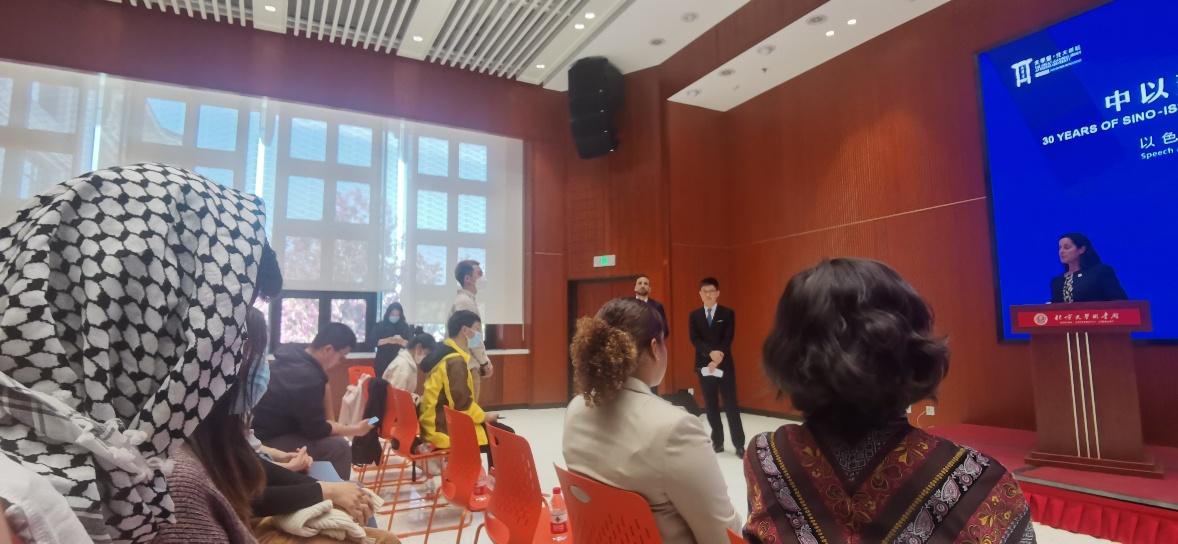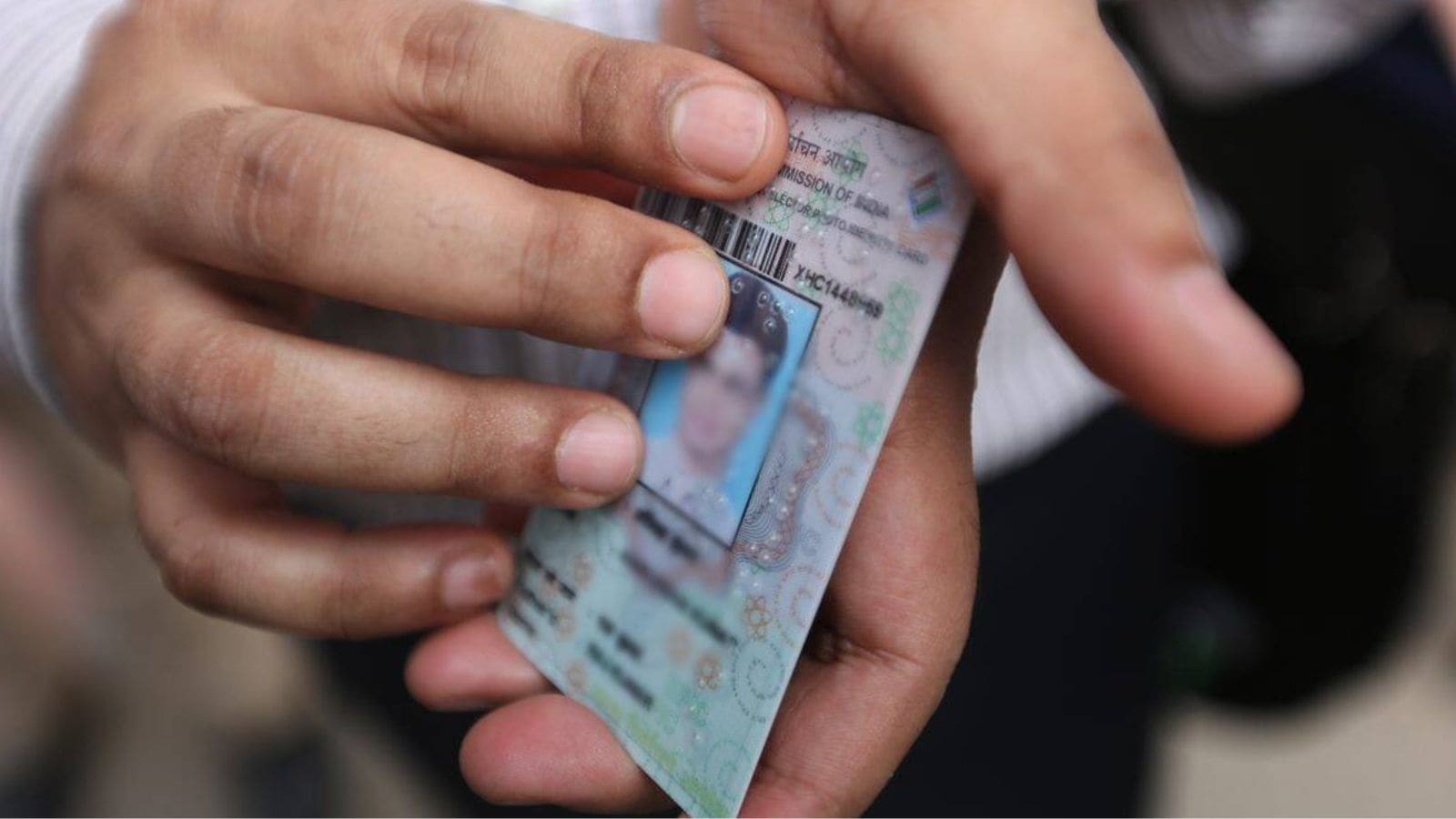PROTECT YOUR DNA WITH QUANTUM TECHNOLOGY
Orgo-Life the new way to the future Advertising by AdpathwayIsrael’s diplomatic predicament vis-à-vis China cannot be understood without first examining the profound transformation of China’s discourse on Jews and Israel over the past three decades. The shift has unfolded through three distinct phases that have fundamentally reshaped the environment Israel must navigate today.
The first phase began in 1992, when the two nations established diplomatic relations. Throughout the 1990s and early 2000s, China’s mainstream discourse about Israel was overwhelmingly positive, if reliant on stereotypes. Narratives centered on Jewish intelligence, diligence, commercial success, and Shanghai’s role in providing refuge for Jews during the Holocaust. The overall effect was admiration and cultural affinity.
Around 2010, the rise of social media introduced a phase of fragmentation. The previously coherent positive imagery gave way to competing interpretations. Nationalist readings of Israeli geopolitics gained visibility; conspiracy theories imported from Western entered Chinese digital spaces; and real-time exposure to Middle East conflicts recast Israel as a geopolitical actor rather than a historical victim.
The third phase began in the 2020s, when these fragmented narratives consolidated into a more polarized and increasingly hostile environment. Antisemitic tropes and anti-Israel narratives circulated widely, amplified by algorithms. The intensifying China-U.S. rivalry added a geopolitical layer to perceptions of Israel. At the same time, the institutional infrastructure that once supported Sino-Israeli academic, cultural, and educational exchange had largely collapsed, leaving very few mechanisms through which Israel could meaningfully engage Chinese society.
These three phases correspond directly to Israel’s current structural constraints in China. The once-open political environment has narrowed under geopolitical rivalry between China and the U.S.; China’s perception of Israel has shifted from admiration to suspicion and hostility; and the collapse of academic and cultural exchanges has deprived Israeli diplomats of the networks required for effective public diplomacy.
It is within this transformed landscape that the term of Ambassador Irit Ben-Abba (2021–2025) must be understood. Ben-Abba did not create these challenges; the difficulties she encountered during her tenure reflected both her individual missteps and institutional weaknesses within Israel’s diplomatic system. These cracks became far more visible after October 7, 2023, when Hamas’ brutal attack on Israeli settlements sparked the Gaza War.
The first major issue was Ben-Abba’s failure to respond to early warnings about rising antisemitism on Chinese social media. Well before October 7, both Chinese and Israeli scholars alerted the ambassador to escalating hostility on Chinese social media platforms such as Weibo, Douyin (Chinese TikTok), and Bilibili. Yet little action followed.
Instead, in May 2023, the embassy mistakenly boycotted a lecture by Professor Yin Gang, one of China’s most consistent advocates of China-Israel relations. Although Ben-Abba later apologized, the incident significantly undermined trust.
This inversion was even more damaging than it first appeared: the embassy openly boycotted one of Israel’s strongest supporters, yet said nothing about Chinese academics who were actively promoting antisemitic narratives on campus and on social media.
For the few Chinese scholars who have long defended Israel in good faith, this sequence of decisions was profoundly disheartening. It signaled that their commitment was neither seen nor valued, while hostile voices were allowed to expand unchallenged and unchecked.
A second weakness lay in the ambassador’s disengagement from higher education. Chinese universities have been playing a central role in shaping elite opinion, yet during Ben-Abba’s tenure, the embassy rarely attempted to cultivate ties. When a campus-wide Jewish Civilization course – the largest of its kind in China – invited her to participate in 2021, the request was declined without discussion.
The embassy only began reaching out to scholars after October 7. Several senior Chinese academics noted privately that the embassy had not contacted them in years, but turned to them urgently once the crisis began. Public diplomacy cannot be improvised but it relies on long-term cultivation, trust, and continuity. None of these were in place during Ben-Abba’s term.
As a result, after October 7, the embassy found itself without any access to the universities and scholars who shape how China understands Israel. Because no academic relationships had been built in advance, there were simply no channels through which Israel could speak to the audiences that mattered most.
These trends – ignoring rising antisemitism and failing to cultivate relationships – combined to create a scandal in April 2022, at an event held at Peking University to commemorate the 30th anniversary of Sino-Israeli diplomatic relations. What should have been a celebratory occasion instead became a moment of embarrassment. A Chinese student attended wearing an Arab keffiyeh as a form of protest. The moderator of the event was a faculty member in Peking University’s Department of Hebrew, who has been widely identified as a prominent promoter of antisemitic narratives on Chinese social media, as documented by Israeli researcher Tuvia Gering. One example included a post arguing that the October 7, 2023 attacks on Israeli civilians were necessary to give Israelis “a relatively normal understanding of themselves.”

A Chinese student wore a keffiyeh in protest during the 30th anniversary event of Sino-Israeli diplomatic relations, while Ambassador Ben-Abba was speaking. Photo courtesy of Yang Meng.
These incidents revealed the absence of basic due diligence: no background checks, no analysis of online reputations, and no risk assessment. The scandal was astonishing for an event marking the 30th anniversary of diplomatic relations. A moment meant to symbolize three decades of cooperation became, through the embassy’s lack of basic vetting and risk assessment, a stage for anti-Israel and antisemitic gestures.
Meanwhile, the embassy’s digital communications after October 7 generated a series of scandals. Numerous official WeChat posts by the Israeli embassy were released with unedited machine translations, resulting in awkward, inaccurate, and culturally tone-deaf messages that conveyed disrespect to Chinese readers.

On the embassy’s official WeChat account, comments containing Hitler avatars were not only left visible but were highlighted as “featured comments,” revealing a remarkable lapse in content review. Screenshot by Yang Meng.
Even more damaging were many incidents in which WeChat posts prominently featured reader comments containing Hitler avatars. Any staff member with even minimal familiarity with global antisemitism should have recognized it instantly. The fact that these comments were highlighted raises legitimate questions as to the cause: whether simple negligence, a complete breakdown in internal review, or even deliberate sabotage by locally hired staff. Any of these interpretations would be alarming.
Similar issues appeared in the Israeli consulates in China. The Shanghai consulate’s public collaboration with the Anti-Defamation League triggered intense online backlash. The Chengdu consulate issued an error-filled public letter that went viral as a joke, further harming Israel’s wartime image. At their core, these incidents demonstrated something deeper: Israeli diplomats did not understand Chinese society at all. They did not know how the Chinese public reads, reacts, or mobilizes online. As a result, the consulates not only failed to communicate but also generated ridicule, undermining Israel’s credibility at a critical moment.
Meanwhile, the embassy continued to have its head in the sand regarding rising antisemitism in China. Ben-Abba mischaracterized the situation during a November 2023 interview with Voice of America, claiming that antisemitism had “subsided.” While she acknowledged that antisemitism had become “a global kind of trend” after October 7, Ben-Abba claimed that “this definitely was never a phenomenon in China. I would even say the contrary is true, what we have seen all these years in China is a very positive kind of attitude to Jews and to Israelis.”
This assessment was demonstrably inaccurate and suggested a serious disconnect between the embassy’s internal evaluations and observable reality. Ben-Abba’s claim did real damage. It reflected an alarming ignorance of the situation and transmitted that ignorance back to Jerusalem, shaping policy with a false picture of reality. At a time when informed judgment was essential, the embassy misled its own government.
And for the few people in China who were actively fighting antisemitic and anti-Israel narratives, Ben-Abba’s remarks were devastating. She signaled that the very institution meant to support them had no grasp of the struggle they were facing.
Ben-Abba’s term ended early – but not because of the many missteps in her host country. Instead, she lost her post after she publicly criticized her own government at an official event in the embassy. Her planned farewell reception was canceled.
There is a tragic irony here. Ben-Abba did not meaningfully counter rising antisemitism in China, yet publicly challenged her own government. She remained silent where her voice was urgently needed – in confronting antisemitism in China – yet spoke out on an issue where she should have remained silent, by criticizing her own government.
Her silence had no consequences for her professional career; her speech ended her term.
This exposes the fact that Ben-Abba was not the problem. She was the symptom of a diplomatic system weakened by political appointments that substitute personal loyalty for professional expertise; a symptom of institutional failures marked by the absence of basic due-diligence procedures, effective oversight, and any meaningful preparation for the complexities of China’s rapidly shifting discourse and political environment; and a symptom of a persistent failure to treat China as a serious diplomatic arena, leading Israel to send underprepared personnel to one of its most challenging postings. These structural weaknesses long predate Ambassador Ben-Abba and, unless addressed, will outlast her.
So far, the early signs are not promising. The Israeli embassy has still not grasped the political implications of the State of Qatar Chair (the only Qatar center in Asia) becoming firmly embedded at Peking University. Qatar’s institutional presence now shapes Middle Eastern discourse at China’s top university far more actively than Israel itself.
Even more troubling is the deeper paradox that the very Hebrew program Israel once supported has, over the years, come to be anchored by a Chinese scholar widely recognized as a purveyor of antisemitic narratives. What was intended to serve as a bridge of cultural understanding has instead become an incubator of hostility.
Few developments reveal Israel’s strategic blind spots with such painful clarity. Where Israel stepped back, others advanced with purpose; where Israel assumed that goodwill would sustain itself, an entirely different narrative ecosystem emerged. If Israel does not fundamentally rethink its diplomatic posture toward China, it will lose influence and forfeit the ability to define itself, and how its story is told.


 9 hours ago
7
9 hours ago
7



















 English (US) ·
English (US) ·  French (CA) ·
French (CA) ·  French (FR) ·
French (FR) ·